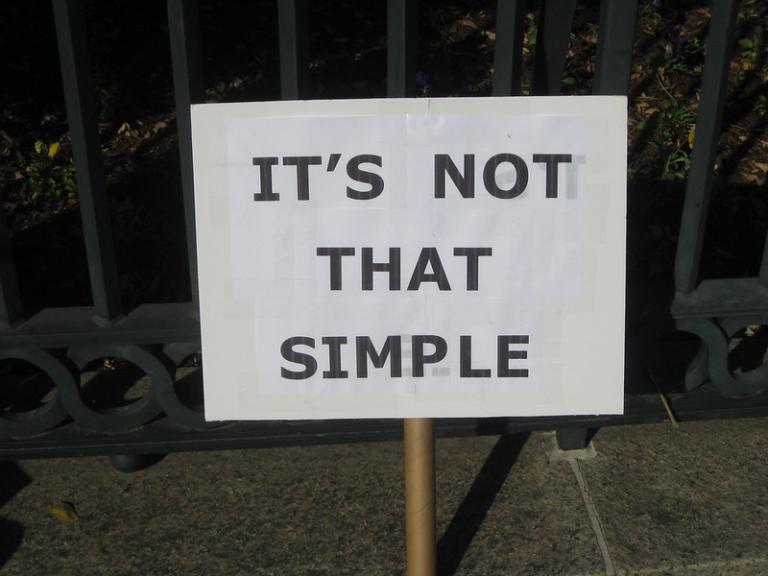As the election year gets under way, all agree that American politics is highly polarized. And yet most Americans do not agree fully with either pole. Nevertheless, they will have to vote for one pole or the other.
A new Gallup poll has found that 27% of Americans identify as Democrats and 27% identify as Republicans. A record 43% identify as Independents.
That two small minorities choose the candidates the rest of the nation has to choose from is a strange way to run a democracy. This calls to mind George Washington’s warning about political parties in his Farewell Address (1796):
They serve to organize faction, to give it an artificial and extraordinary force; to put, in the place of the delegated will of the nation, the will of a party, often a small but artful and enterprising minority of the community; and, according to the alternate triumphs of different parties, to make the public administration the mirror of the ill-concerted and incongruous projects of faction, rather than the organ of consistent and wholesome plans digested by common counsels, and modified by mutual interests.
However combinations or associations of the above description may now and then answer popular ends, they are likely, in the course of time and things, to become potent engines, by which cunning, ambitious, and unprincipled men will be enabled to subvert the power of the people, and to usurp for themselves the reins of government; destroying afterwards the very engines, which have lifted them to unjust dominion.
Government by faction. That is to say, government by a series of factions, one after the other. To the advantage of “cunning, ambitious, and unprincipled men.” So that “the will of a party” takes the place of the “will of the nation.” If only we had obeyed the Father of our Country.
Peter Savodnik has written a fascinating article for The Free Press entitled The Great Scramble on how both political parties are failing to represent the beliefs and interests of a large segment of the American public. “Nearly half of Americans now identify as independent,” he writes, “not necessarily because they’re centrists, or moderates, but because neither party reflects their views.”
One argument for political parties is that they embody different philosophies of government that voters can identify more clearly where a candidate stands. But today the parties are not even doing that.
The parties have actually switched places, Savodnik shows, adding to our political confusion. He cites experts who have been studying the phenomenon:
[Yuval] Levin described two axes in American political life—one right-left, and the other insider-outsider. Traditionally, the party of the right has been the party of the inside—the establishment—and the left has fought for those on the outside—the poor, the disenfranchised.
“But in the twenty-first century, they’ve switched sides,” he said. “Democrats are the elites, and Republicans feel like they’re fighting the establishment.”
One way to think about it, said Michael Lind, author of The New Class War: Saving Democracy from the Managerial Elite, was geographic: “From Lincoln to Reagan, New England, the Upper Midwest and the Great Lakes, and the western states were the Republicans, and now they’re the Democrats—while the interior was all the Democrats, and now they’re the Republicans.”
Now the Democrats are the “party of the rich.” The median price of the home of a Hillary Clinton voter was $200,000 more than that of a Donald Trump voter. Of the 50 wealthiest congressional districts, Democrats represent 41. Democratic politicians and their staff tend to be products of the elite Ivy League universities, while Republicans tend to come from state universities.
The “Left” includes liberals, who believe in addressing economic disparity, and progressives, who focus on identity politics. Savodnik quotes Tyler Harper, a more traditional leftist scholar who supported Bernie Sanders:
“Progressives,” Harper said, are the people who think racial identity reigns supreme and have no serious objection to capitalism. “I don’t think they’re left-wing in any substantive sense at all,” Harper said of progressives. He saw progressivism and “corporatism” as “natural allies.”
As we see in the big corporations that have embraced Diversity, Equity, and Inclusion mandates.
Savodnik doesn’t discuss the “Right” as much, but, as we have been discussing on this blog, there are now a wide range of quite different ideologies–Christian nationalism, libertarianism, protectionist economics, free market economics, cultural conservatives, classical liberals, integralists, and authoritarians–all of which go by the label “conservative.”
As Oklahoma City republican Jason Reese says, “Our language is impoverished, left over from the French Revolution, with us just saying ‘right’ and ‘left’ and what we think we mean by that.”
It isn’t that the Independents are simply moderates between two extremes. Nor that they are apolitical, just not caring about politics or not knowing what they believe. Savodnik interviews a number of people whose views are just too complicated to fit into any party line.
He cites a lesbian truck driver who “can’t stand the kids in the LGBTQ+ movement with their ’20 zillion acronyms.’” She worries about illegal immigration, the economic problems of small town rural America, and the prospect of getting involved in more foreign wars. But she’s pro-abortion and worried about the environment. She voted for Trump, then Biden, and now doesn’t know who to vote for. Reports Savodnik, “She said she isn’t a ‘conservative’ or ‘progressive,’ and definitely not a Democrat or Republican.”
Then there is the school teacher who is pro-life and an environmentalist. Then there is the mom from India:
She had immigrated to the United States from India with her family when she was eight, and she had always leaned Democratic.
It’s not that she doesn’t know what she believes. She is definitely pro-choice, but she also wants to curb “unauthorized immigration.” She thinks the new gender politics is insane, but she believes strongly in defending civil liberties. And she’s giving her four daughters a traditional homeschool education that includes Latin and classical music.
The trouble is that all of these things do not fit together into one party or camp or label.
What can we conclude from this political “scramble”? Perhaps if our government and our political parties had more modest aims–focusing on consensus issues such as curbing illegal immigration and improving the economy while toning down the rhetoric about the more divisive issues–they could cobble together a winning coalition of these independent voters. Any other ideas?
Photo: “Let’s Have Some Complexity” by futureatlas.com via Flickr, CC by 2.0











